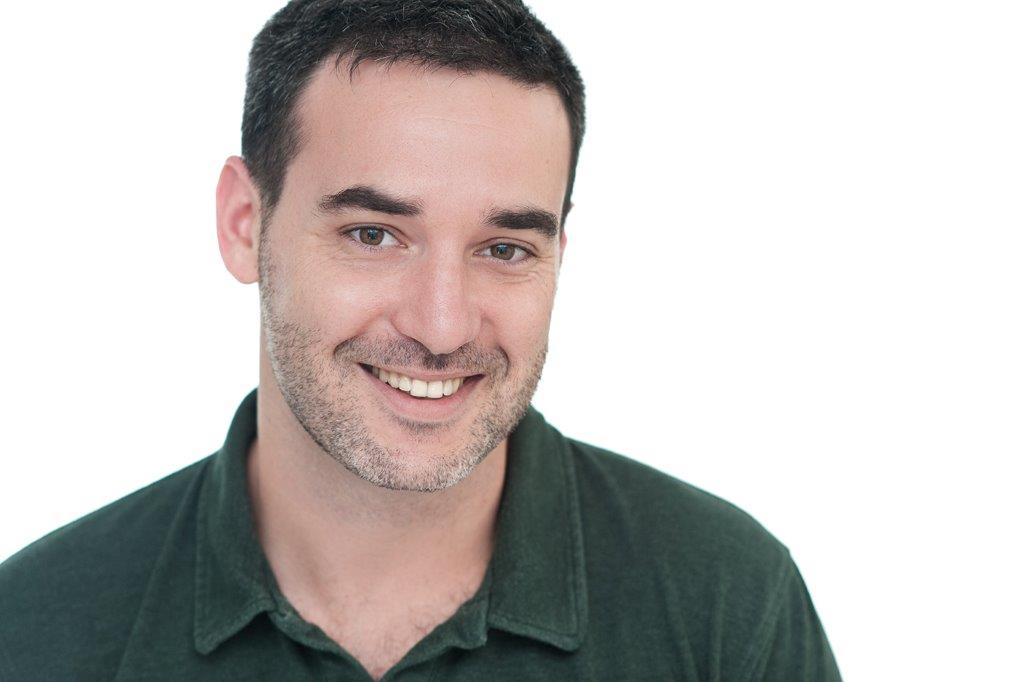Recently, Forbes Magazine published an article titled 12 Israeli Technologies Changing the Lives of the Disabled in 2015. Sesame Enable, one of the companies profiled, has just won the million dollar first prize in Verizon’s Powerful Answers Competition.
To celebrate the launch of our new series “Start-up Spotlight”, profiling start-ups developing technologies for people with disabilities, we have interviewed Oded Ben Dov, entrepreneur and co-founder of Sesame Enable, a company that has developed a technology that enables the user to control a smartphone using only head movements; no need to touch the screen. The product is in its final stages of development and should hit the market in the next few months.
Oded, tell us a bit about yourself…
I am 30 years old, married and have a two and a half year old daughter. I live in Kfar Saba, Israel. Following my army service in an elite intelligence unit, I worked for Check Point, a top cyber-security firm, for two years. I then completed a degree in computer science at the Technion, in Haifa. Upon graduation, instead of following my classmates to Google or Microsoft, I decided to open my own business developing iPhone apps.
How did you get the idea to develop a product for people with disabilities?
One of the games we developed was a game controlled by head movements. After the game was profiled on a local news program, I got a call from Giora Livne, my current business partner. He saw the program and immediately understood the potential the technology has for people like him, people paralyzed from the neck down with limited use of their hands. When he first calledI thought someone was playing a joke on me. He said: “Hello, I’m Giora. My arms are paralyzed. Do you think you can develop a smartphone for me to use?” When I realized he was serious, I was immediately excited by the potential. I had the technology and he had a very strong need. It was clear to me that I had to help him.
Where does the name Sesame Enable come from?
We wanted to call the company Sesame, as in Open Sesame – opening opportunities – but Sesame was already taken. So we decided on Sesame Enable in order to highlight the company’s vision.
So how does the product work?
Our product is software-based, but as it requires a special installation, we have decided to sell it together with the device. So we are selling a regular Android smartphone on which we have installed an interface that allows the user to control it using head movements. The phone’s camera “sees” the user and translates his/her head movements into mouse control.
It was important for us to make our product for a standard device, as opposed to a dedicated device, in order to keep the price down and to provide a “normative” solution.
What makes your product better than any others on the market?What does your product have over the competition?
At the moment there are no smartphones adapted for use without touch. The adaptations that are available are only for computers and require dedicated hardware. We decided to enter the mobile Android market. Google Play has over one million apps and our solution works for all of them. We didn’t adapt just one app, we developed a complete solution that works on the whole phone and all of its apps.
Tell me a bit about the development process…
After a year and a half of development, we had a prototype but we weren’t yet ready to show it to investors.
We realized we needed outside assistance and I applied for a Microsoft accelerator but did not get accepted. Then a friend sent me a link to A3i, an accelerator to benefit people with disabilities supported by Beit Issie Shapiro, PresenTense, and the Ruderman Foundation, and I finally felt that there was an organization that understood where I was coming from.
What did you gain from the accelerator?
First of all, I really enjoyed it. It was fulfilling. Most of the other entrepreneurs in the accelerator were there because of their own personal need or connection to someone with a disability. I came because of Giora, and the accelerator helped me develop a better picture and understanding of his world. Through the program, I had excellent mentors, Israel Rot (Labgoo), and Adina Enden (AfterDox), whohelped me to build a business plan, work through my doubts, define the messaging, and make connections, which was essential. They continued to assist me even after the accelerator ended.
The accelerator also helped with exposure and public relations. For example, the Verizon prize that we just won – without the accelerator, we would not have even known about the competition.
What stage is the product in now?
The product will be released to the market in April. For now it can be pre-ordered via the crowdfunding site Indigogo, for $700. The price includes the phone, a Google Nexus, and the software.
And what are the plans for the future? Further Development?
Our first priority is to finish development of the phone. Then we will wait to hear feedback from the users to make sure we are bringing a good product to the market and adjust accordingly.
In the future, we plan to make the software available for Android tablets as well, and we will investigate the possibility of support for eye gaze. We also realize the potential our technology has to allow people to control home devices (smart homes, IOT –Internet of Things) through their phone. We understand that we have opened a window not just to the digital world but also to the physical world and that Sesame Enable can facilitate independence and control for people with disabilities beyond what we originally imagined.





Leave a Reply